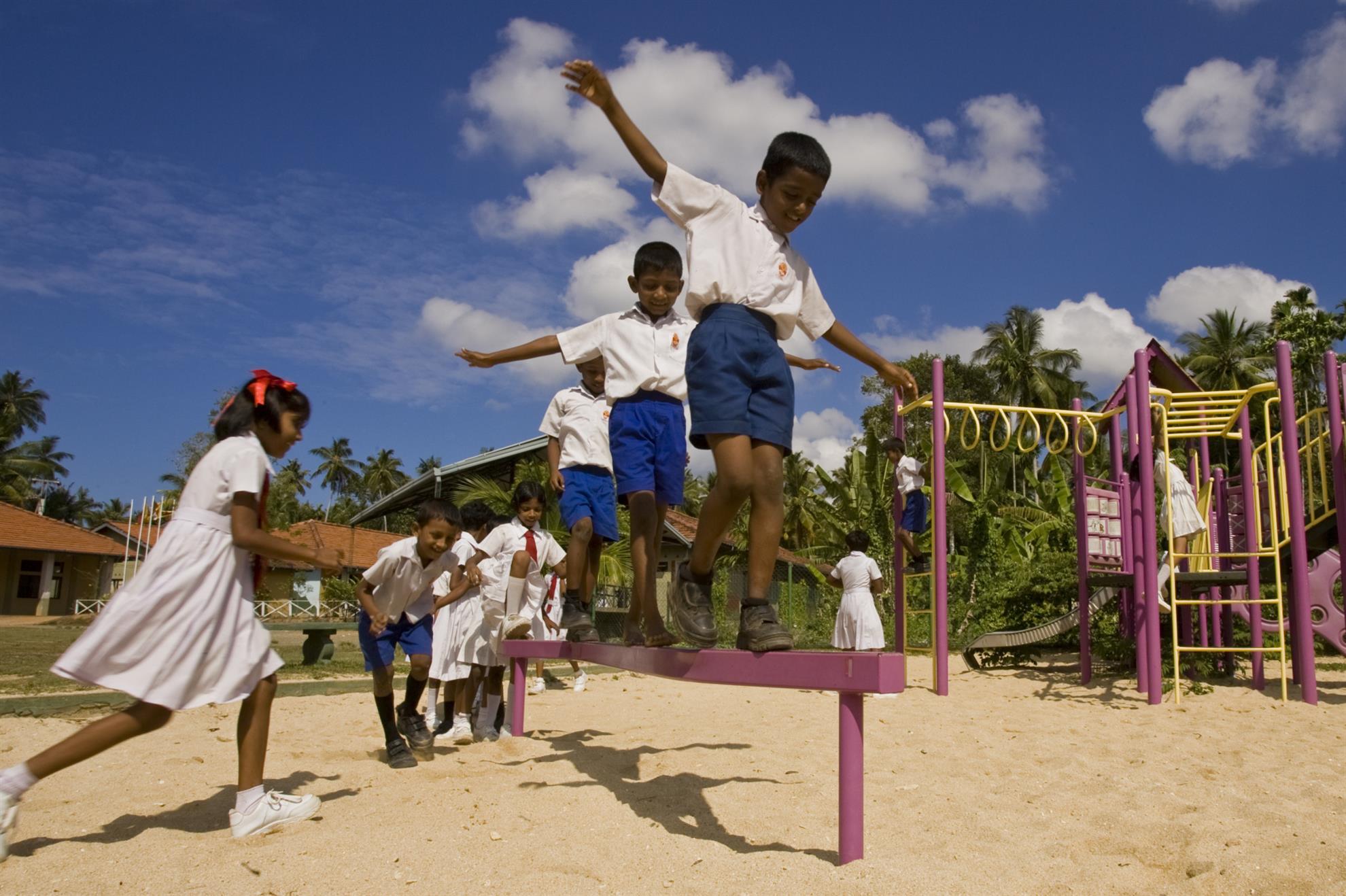Posted on September 4, 2018 by rotaryservice
By the Literacy Rotarian Action Group (LitRAG) Edited, for this publication, where previous project information is outdated so no longer relevant.
Literacy skills are essential for participating in family life, your community, learning and employment and to access services. Literacy skills help people solve day-to-day problems and make the most of opportunities in life.
The Literacy Rotarian Action Group (LitRAG) is a network of Rotarians around the world who have a special interest in acting upon the mission and goals of Rotary International related to alleviating illiteracy; enhancing literacy teaching and learning globally, and helping to provide materials and equipment for literacy education at different levels.

Over 776 million people over the age of 15 are illiterate. That's 17 percent of the world's adult population.
Students on the playground at Dharmarama Kanishta Vidyalaya in Ahangama, Sri Lanka. This school was rebuilt through the Schools Reawaken project after the 2004 tsunami. District 3220 (Sri Lanka) raised funds for the project and received support from The Rotary Foundation, Standard Chartered Bank, and other contributors. A local Buddhist temple donated the land.
Literacy refers not just to letters and written text, but also to other multimodal, technological and symbolic representations that we encounter daily. Without basic literacy skills everyday tasks are harder – whether it be reading a bus timetable, applying for a loan or job, finding information on the internet, enrolling in a course, taking medicine, or reading to your child. Not being able to do these important activities can lead to a person feeling less confident in themselves and their abilities. It can also lead to experiencing higher levels of social and economic disadvantage. With the support of your Rotary club, taking on a literacy project can help you make a significant difference in people’s lives.
But what is a literacy project? Is it a simple or difficult thing? What if none of us are teachers? A literacy project can be as straightforward as raising funds to buy a set of books for a school, community group, or a retirement village. But a project is not necessarily about raising money. More effectively, it can be about educating people, whether young or mature, who need support in developing their literacy skills. The range of literacy skills people need for everyday life and work changes over time and in different contexts.
Businesses can also benefit by improving the literacy skills of their workforce, as demonstrated through improvements in productivity, the confidence and communication capacity of employees, and better health and safety. As more people gain qualifications and skills over time, businesses will benefit by having more skilled and effective workers. Try developing a community literacy project that could work for permanent social change.
Below are a few ideas on how you can take action:
- Organize a writing competition for children at your local school(s)
- Organize a spelling contest for children at your local school(s)
- Arrange a limerick competition on social media
- Host a poetry festival
- Donate books or dictionaries
- Recruit an educator to your club
- Run a literacy seminar for clubs in your local area
- Get Interactors involved in establishing a local literacy project
- Work with Rotaractors to help with an adult literacy project
- Establish a project in which club members and friends regularly read with children
- Visit a local prison and work out a plan to help inmates improve their reading and writing skills
- Partner with the International Literacy Association on a joint project